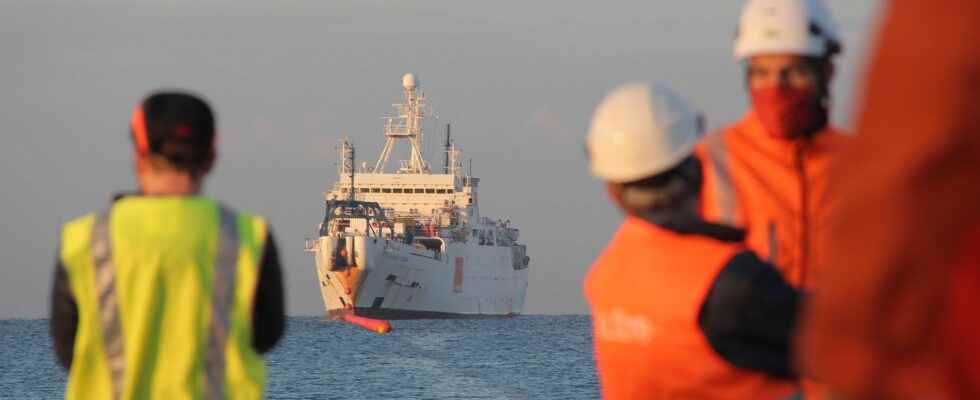It is an immense sea serpent which unrolls its rings between Asia and Europe. 19,200 kilometers long, the Sea-Me-We 6 submarine Internet cable will link France to Singapore by 2025 via Egypt, Saudi Arabia, Djibouti, Pakistan, India, the Maldives, Sri Lanka, Bangladesh, Malaysia. For China, however, it’s mostly a big sucker. A recent article from FinancialTimes reveals that the two telecom giants China Mobile and China withdrew from financing the project, after their champion Hengtong Marine was not selected for the laying of the cable (an American was preferred to him). They were initially to contribute 20%. A revealing sequence of the battle in which the two powers are now engaged on Internet cables.
The United States takes a very dim view of Chinese ambitions under the sea. The cable sector does not, however, generate the juicy profits that the heavyweights of the Web or software can bring in. But both Beijing and Washington have understood the strategic importance of these technological highways. It is indeed via these submarine cables that 98% of the world’s Internet traffic now passes. Without them, no more messages and financial transactions, pictures of cute cats and sending “Very Very Urgent” files. Directing the routes of these cables is to ensure that companies in certain areas can conquer new customers abroad. It is also – and even above all – a way of limiting the risk that these pipes which carry vertiginous flows of communications are targeted by spies.
Internet cables in the sights of spies
It is, in fact, at the junction points with the mainland that the risk is highest. The place from which a cable starts, where it lands and all the cities where it stops are therefore scrutinized and are the subject of real diplomatic battles. In recent years, China has advanced its pawns with boldness, and achieved some nice moves, obtaining for example – to the chagrin of the Americans – to carry out its Peace cable project which links France to Kenya and Singapore, passing by nearly ten countries. But the United States is working more and more actively to block the passage of Chinese companies which, in fact, are prohibited from landing any cables on their soil.
The Americans “are abandoning Hong Kong and repositioning themselves on Indonesia and the Philippines”, noted last October Jean-Luc Vuillemin, director of international services and networks at Orange, in our columns. The White House is also increasingly lobbying its allies to marginalize China in this area. “It’s in every way similar to the campaigns led by the Americans against Chinese 5G antennas”, confided Julien Nocetti, associate researcher at the French Institute of International Relations, at the end of 2022. At the same time, the United States is rising in power in the field of cables. The Googles, Metas and Microsofts are involved in all the projects, when they are not carrying them out themselves, whether it is a question of multiplying the historically numerous links to Europe or of building new ones (in Africa, in South America…). Under the sea, Uncle Sam weaves his web.
